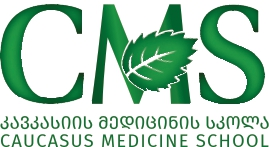The scientific paper "Medical Education Reform in Georgia: Experience, Vision for the Future" was published in the "Matsne" of the Georgian National Academy of Sciences.
The authors of the paper are:
Tengiz Verulava - Doctor of Medicine, Professor at the School of Medicine and Healthcare Management of Caucasus University;
Avtandil Jorbenadze - Doctor of Medicine, Chairman of the Supervisory Board of Chapidze Emergency Cardiology Center
Short description of the article:
Orientation in the field of healthcare in independent Georgia laid the foundation for a new system of medical education based on modern principles, which responded to the latest world experience. However, the main difficulty in carrying out the reforms was the scant and incomplete funding allocated by the state for continuing medical education. The healthcare system suffered from a chronic shortage of funding as the state often failed to fund its promised commitments. As a result, continuing medical education and retraining cost physicians a considerable amount of money. Since 2003, the approach to the continuing medical education system has changed and continuing medical education for medical staff is no longer a mandatory requirement. Certificate of Independent Medical Practice is issued for life and is not subject to post-admission criteria for professional development (or retention) - the doctor is not required to undergo re-certification or earn credit points. For comparison, in the vast majority of European countries, participation in continuing medical education is compulsory. For example, in Austria, Germany and Hungary, continuing medical education is compulsory for doctors, in Italy it is compulsory for doctors working in the national health care system, while in Switzerland it is compulsory for doctors to attend continuing medical education; in the Netherlands and Norway it is compulsory for general practitioners. The existing medical education system in the country (undergraduate education, residency, continuing medical education and professional development) needs further reform to balance the new flow of physicians and increase the role of nurses based on the needs of the country in the health sector. Given that there is a direct correlation between patient safety, quality of medical care, and continuing medical education, it is necessary to ensure a continuing medical education obligation based on best international experience. Georgia is a country of European orientation, we will probably become members of the European Union soon, and thus, along with many other parameters, our medical education system must be developed in accordance with the requirements of the European Union.
See the article at the link


.jpg)